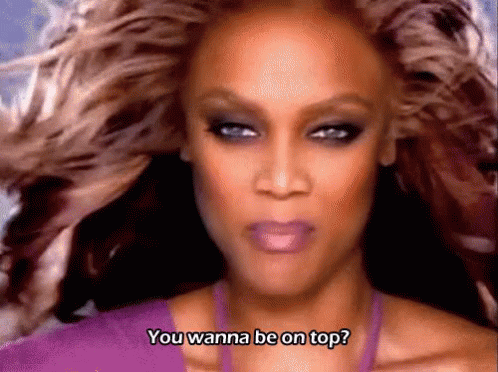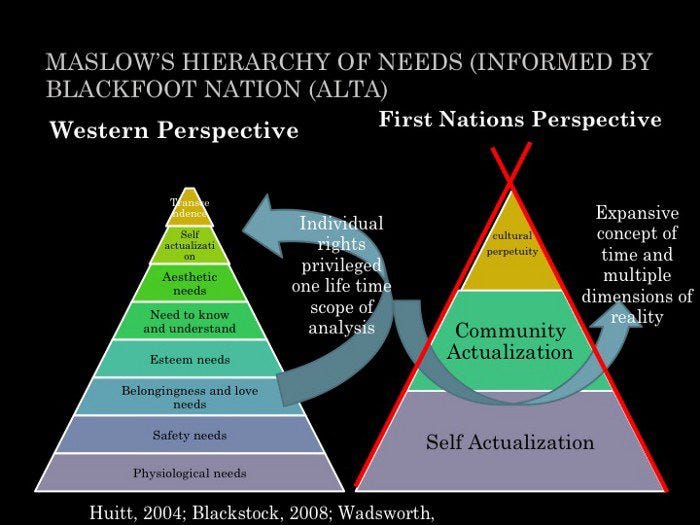🎶You wanna be on top? 🎶
I’ve been thinking about this concept a lot lately - about success, the American Dream, manifesting jobs and money - and how it all relates to community, cooperation, and meeting everyone’s basic needs.
Full disclosure, I’ve never been a competitive person. I hate playing sports. I’ve never aspired to be a CEO or a millionaire. I don’t want a big house or a nice car. So perhaps my musings don’t take into account the drives of people who inherently value achievement and recognition. But success is the value of my collective culture and my comments aren’t intended to neg any one person.
My rabbit hole was opened when Abigail on Philosophy Tube said something that I feel like should be obvious, but I genuinely had never thought of. She said that whatever price you are getting paid for your work, it’s not the value of the work you’re doing. If it was, then your managers and CEOs would be working pro bono. 💀
This was reiterated when the If Books Could Kill podcast did an episode on the 4 Hour Workweek. If you’ve never heard of that book, it’s basically the Bible for the hustle culture bros and #girlbosses. In theory, it teaches you how to streamline your workload in order to work less and make more money. The cliff notes version is: vastly underpay someone to do your work for you. How novel…
But the truth about the American Dream is that it has never been available for everyone nor was it intended to be. From the start of this country it has relied on the sacrifice of whole groups of people. Why do we pretend like this culture wide pyramid scheme is a universal goal or something inherently good!? The system literally cannot function in a way that allows everyone to be this kind of successful - eventually we will run out of people to oppress.
Which brings me back to theoretical topic of this Substack - self-help. I often hear people quoting Maslow’s hierarchy of needs which places self-actualization (often understood as personal success) at the top of the pyramid. But what many people don’t know is that this pyramid was a loose adaptation of indigenous wisdom (specifically from the Siksika who we call the Blackfoot people). Maslow himself later came to recant what has become his seminal work, saying in an unpublished essay titled “Critique of Self-Actualization Theory”:
…self-actualization is not enough. Personal salvation and what is good for the person alone cannot be really understood in isolation. The good of other people must be invoked as well as the good for oneself.
If you want more information on how Maslow’s theories compare with those of the Siksika, I highly recommend reading The Blackfoot Wisdom that Inspired Maslow’s Hierarchy. But the extremely short version is that the Siksika viewed humans as whole and self-actualized when they came into this world. Therefore, the emphasis was instead on community actualization and cultural perpetuity. The goals of keeping people fed and housed and loved are the task of the whole, not of each individual alone. Personal wealth isn’t held, it’s funneled back into the community so that everyone thrives. The individual is asked to use their whole, talented self in a way that respects all the lives with which they are entwined. Self-actualization at the expense of your community is the exact opposite of the true nature of fulfillment.
Admittedly, this may be grating to us raised in a world where individuality is encouraged. This worldview asks us to blend in when we have been taught to stand out. It asks us to cooperate when we are told to dominate. But when I’m feeling compelled to make myself seem extra special - to be an ✨individual✨, I ask myself these kinds of questions:
“Do I want to put in the work to stand out, because it’s a lot of work?”
“Would I really gain anything by being unique?”
“Is it actually a bad thing to be like other people or have I just been told that?”
“Is it even possible to be ‘one-of-a-kind’ when I’m so heavily influenced every day by social media?”
And most importantly: “Do people suffer at the expense of my being ‘unique’?”
As much as it would be great to change to a more equal, caring, communal system overnight, that can feel a long way away in today’s world. So maybe a good first step is examining our desires to be an individual and find our own success. We can open our minds to the possibility of being part of a group who finds fulfillment together. And if we can’t see those types of community around us, we can be the start of one.
Thanks for the read,
Hannah ✌🏼
Content that inspired today’s post!





